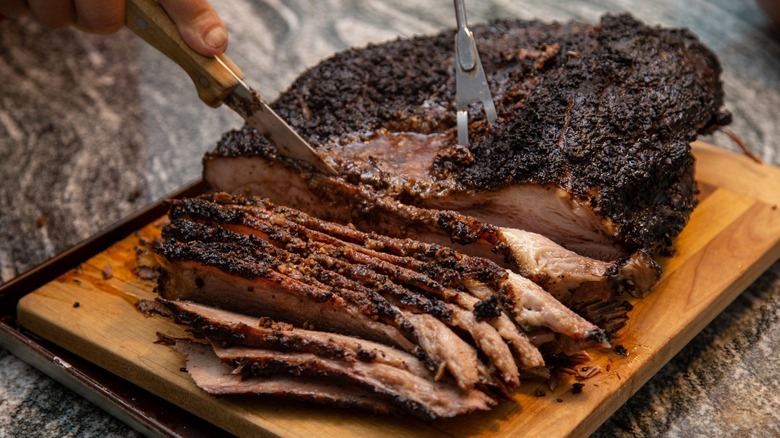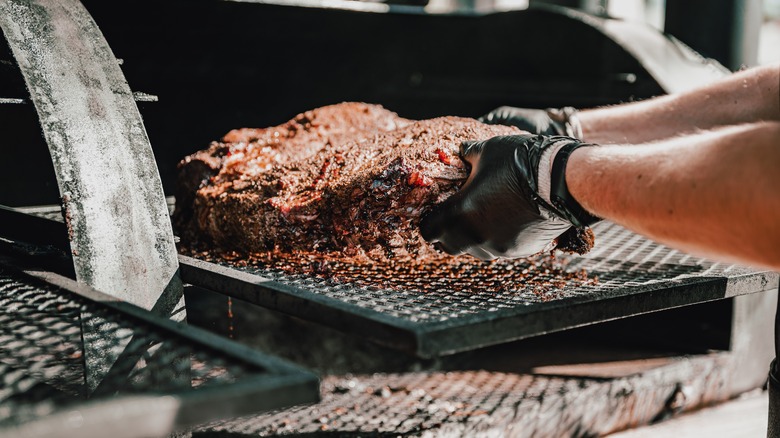The Biggest Mistake You're Making When Cooking Brisket
Cooking brisket can be a delicate and lengthy process with results that can vary widely depending on the person preparing the meat and their approach to timing, temperature, and rubs. If you want to make sure you don't risk ruining a perfectly good piece of beef, it helps to listen to the experts.
Classically European-trained chef Mark Strausman of Mark's Off Madison (M.O.M.), formerly Fred's at Barneys New York, has some advice on how to avoid the biggest mistake people commonly make when cooking brisket, and it centers around time and temperature. "Most people are scared to cook the brisket long enough, and they cook it at too high a temperature," says Strausman. "Brisket should be cooked slow and low — 325 degrees until the meat is fork tender. Until the broiler fork goes through the brisket like a hot knife through butter; You shouldn't have to push it at all."
Slow and low is the key
So, when it comes to cooking brisket correctly, patience is indeed a virtue. While there are different ways to cook brisket, ranging from the smoker to the oven to the slow cooker, the most important thing is to be mindful of the temperature and timing, as noted by Strausman. A brisket is a big muscled cut of beef from the cow's lower chest, and it takes the "slow and low" technique to achieve the best results, with some recipes taking as long as 16 to 18 hours.
You may be tempted to speed up the preparation time by cranking up the heat, but you can't cut corners with brisket. Sticking to the tried and true methodology Strausman recommends is critical. Otherwise, you could end up with a chewy, tough piece of brisket. Cooking a brisket with the slow and low method not only helps break down its connective tissue but also renders the fat in the beef, locking in that flavor and juiciness. Additionally, it delivers that tender, melt-in-your-mouth texture that Strausman says you should aim for. The next time you cook a brisket, remember: "Good things come to those who wait."

